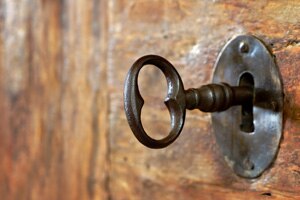The world’s largest online family history resource - Start now
-
Black History Month – Ancestry Initiatives to Honor Black Heritage -
Marking 80 Years Since Auschwitz Liberation: Our Commitment to Holocaust Remembrance -
1921 Census of England & Wales Now Available -
Updated Ancestral Subregions
GET THE LATEST
New posts + monthly newsletter.
GET THE LATEST
New posts + monthly newsletter.

From there, you might learn that an ancestor of Robin Leach, former host of the show “Lifestyles of the Rich and Famous,” was probably a physician because in Medieval times, physicians used leeches to drain blood from the sick. Actor Christopher Reeve’s ancestor, the one to first take the surname, was most likely a sheriff, and Sarah Jessica Parker probably had a Medieval ancestor who tended a park.
These names and others ending in “man” or “er” usually imply an ancestor’s trade. Where history has obscured or transformed the names of trades, the Last Name Meanings and Origins page comes to the rescue. We thus learn that “Chapman” was a shopkeeper, “Latimer” was a clerk who wrote in Latin, and “Lorimer” was a bridle and bit maker.
Other surnames were habitational, or based on location: An Acker, which comes from “acre,” lived near a field, and a Hall lived in or worked in a hall of a Medieval nobleman’s house. Some names are both occupational and habitational — Leach, if not referring to an early doctor, might also have referred to someone who lived by a boggy stream (or a laecc in Old English) or near the specific boggy streams of Eastleach or Northleach in Gloucestershire.
Other names are nicknames or descriptors. “Fox” lets you know an ancestor showed cunning and wit, while “Armstrong” celebrates a more physically-gifted forebear. Genealogists belileve names deriving from plants and animals are almost certainly nicknames
The 14th-century origin of a surname, while fascinating, isn’t as useful in starting your family tree as finding your grandfather’s Army records. That’s where the Last Name Meanings and Origins page really shines. It’s more than a dictionary of surname meanings; it’s an entryway to the more than 15 billion records on Ancestry.
If your surname is Arkwright, the Last Name Meanings and Origins page tells you that your name means “chest maker,” from the Middle English words for chest or bin and maker. The page will also direct you to 60,662 historical documents for Arkwrights on Ancestry, including 19,480 birth, marriage, and death records; 1,095 military records; 1,564 immigration records; and 9,786 census and voter lists. You can map out where Arkwrights originated from, lived in, and moved to.
The Last Name Meanings and Origins page can even tell you the average life expectancy of your family from the 1940s onward.
That’s a lot of information based on one word.
— Sandie Angulo Chen














